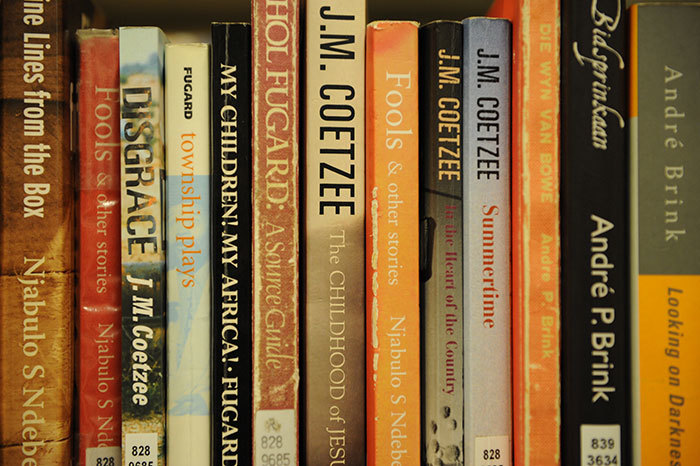UCT Great Minds: Four of South Africa's most important writers
25 March 2015 | Story by Newsroom
On Tuesday 23 March 2015, the 2015 Man Booker International finalists were announced at UCT – the first time this announcement has been made in Africa. In celebration, we've curated lists of some of the distinguished South African writers to have studied or taught at UCT. Here are four titans.
André Brink
(29 May 1935 – 6 February 2015)
Brink's novel Kennis van die Aand, published in English as Looking on Darkness (1973), was the first Afrikaans work to be banned by the apartheid government. By the time he became a professor of English at UCT in 1990 André Brink was considered one of South Africa's most distinguished writers. His novels, which include A Dry White Season, An Instant in the Wind, Rumours of Rain and The Other Side of Silence have been translated into over 30 languages, and won Brink numerous literary prizes (including two Booker Award nominations) and global recognition for his courage in confronting, in his own words, his "love-hate relationship with the Afrikaner". Brink was an honorary professor at UCT from 2000 until his death last month.
"Alone. Alone to the very end. I ... every one of us. But to have been granted the grace of meeting and touching so fleetingly: is that not the most awesome and wonderful thing one can hope for in this world?"
Watch Brink speak about his literary influences in this 2009 interview.
Athol Fugard
(11 June 1931 – )
A few months before graduating from UCT in 1953, Harold Athol Fugard dropped out to hitchhike the continent. After travelling to north Africa he found work on a steamer ship bound for east Asia. It was while he was working aboard this ship that he began writing. Many of his most well-known works, such as Boesman and Lena and The Blood Knot, were originally banned locally for their outright rejection of apartheid. Nevertheless, over the course of the next 60 years, Fugard would become one of South Africa's most celebrated playwrights, directors and novelists.
"For most of my writing life, I've refused to allow myself to believe that writing was a significant form of action. I always felt very uneasy about the fact that all I did was write in a situation as desperate as apartheid South Africa. Whether I was correct or not is a different issue."
JM Coetzee
(9 February 1940 – )
John Maxwell Coetzee graduated from UCT in 1960 with an honours degree in English; and the following year, with an honours degree in mathematics. In 1972 he returned to UCT as a lecturer, becoming professor of English in 1983 (the same year he won his first Booker prize, for The Life and Times of Michael K). He would remain at UCT until 2000, winning his second Booker in 1999 for his novel Disgrace, and the Nobel Prize for Literature in 2003.
"All autobiography is storytelling; all writing is autobiography."
Watch Coetzee read from his book The Childhood of Jesus at UCT in 2012.
Njabulo Ndebele
(4 July 1948 – )
Njabulo Ndebele is not just an author and literary academic – he's also an emeritus professor at UCT, and its former vice-chancellor (from 2000 to 2008). The son of Makhosazana Regina Tshabangu and Nimrod Njabulo Ndebele, who made history as the playwright of the first Zulu drama in print, UGubudele namaZimuzimu (published in 1941), Ndebele's writing career started early, in his teens. Major works include The Cry of Winnie Mandela, Fools and Other Stories (which won a Noma Award in 1984), as well as an influential collection of essays on South African literature and culture, Rediscovery of the Ordinary.
"The capacity of the country to imagine the future depends on the capacity of that country to nurture imaginative thinking from the beginning of a child's life right up to the end of life."
Watch Ndebele speaking in 2011 about what inspires him to get to work every morning.
|
To be in the company of more great writers, don't forget to attend the public panel discussion with the 2015 Man Booker International judging panel on Thursday 26 March 2015 at Jameson Hall. RSVP here. |
Story by Ambre Nicolson. Photo by Michael Hammond.
 This work is licensed under a Creative Commons Attribution-NoDerivatives 4.0 International License.
This work is licensed under a Creative Commons Attribution-NoDerivatives 4.0 International License.
Please view the republishing articles page for more information.










